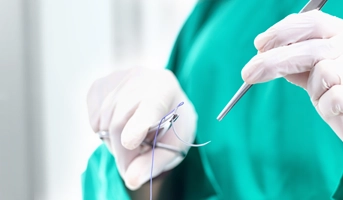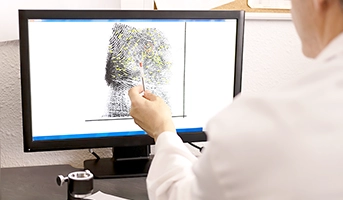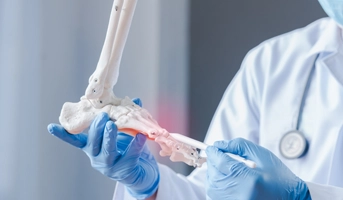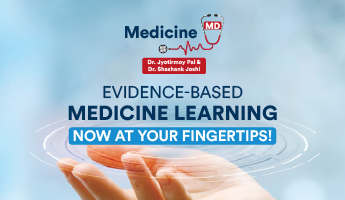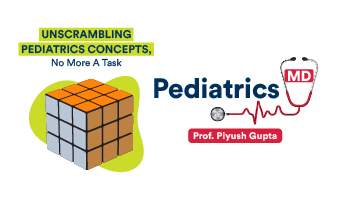Internal medicine, often known as general medicine, is a field of medicine in MBBS that focuses on the treatment, diagnosis, and prevention of a variety of internal illnesses, including neurology, cardiology, and gastrointestinal, among others. Internal medicine courses can be challenging for medical students since they include a wide range of topics and are thus time consuming to learn. It provides a firm basis for your future career as a doctor and may also be rewarding if you understand how to study internal medicine.
Dr. Archith Boloor’s expertise in the subject combined with years of field knowledge provides a comprehensive understanding of this internal medicine course. Further, his study tips- “Persevere Till You Reach Your Goal” for medical students are prized possessions as he himself has won several notable awards and achievements. To help any student looking to learn how to study internal medicine effectively, here are some tips and the best study guide for internal medicine:
- Learn from Ward Rounds – One study advice for medical students studying for their exam is to do rounds throughout the wards on a regular basis. This is a fantastic chance to become familiar with a range of illnesses, symptoms, and treatment plans. The ward’s natural structure, which brings together a range of medical branches in one area, may act as a physical representation of any internal medicine course.
- Explore Reliable Sources – By referencing to online platforms such as DigiNerve along with textbooks makes your concepts even better. With DigiNerve’s online Medicine course, students get to learn Medicine from Dr. Archith Boloor’s lectures. Learning from the author himself strengthens their grasp on topics and avoids discrepancy in the knowledge obtained. Students can effectively study their internal medicine course by combining this information with practicals. They may understand the actual application of a theoretical treatment by comparing multiple sources, resulting in a more holistic internal medicine study guide.
- Use Rotation Time – Most students who are unclear of how to study medicine successfully overlook the time they have during rotations. Students can use flashcards with brief questions and answers, or comprehensive notes, to revise during minor breaks or dull hours, in addition to using the real ward as a means of studying. Saving these little pockets of time for the most difficult material to remember is another study advice for medical students.
- Studying Medical Charts – To assess a student’s knowledge, the internal medicine exam frequently contains questions based on patient files, physical exam results, and ECGs. This is the ideal way for people on rotation who want to learn about internal medicine. Continue to look through genuine patient medical charts to learn not just the framework in which information is presented to doctors, but also prevalent diseases and symptoms.
The above-mentioned medical study tips and the best study guide for internal medicine will undoubtedly boost students’ productivity and increase efficiency. For more information on courses taught by Dr. Archith Boloor.
In the upcoming years, the National Exit Exam (NExT) will serve to standardize Indian medical education by replacing the MCI screening exam as well as the NEET PG exam. Thus, the primary questions on the minds of all medical students are related to learning how to prepare for the NExT exam after MBBS and also finding the best coaching for it. To know preparation tips for the NExTexam, we first need to understand how it is structured:
The NExT exam for MBBS has two parts, NExT-1 and NExT-2.
- NExT-1 is the theory section of the exam and involves several multiple-choice questions from which the answer that is the most correct will be awarded marks. However, much like other medical exams earlier, to begin NExT exam preparation, students first need to complete the final year of their MBBS degree. After around 15-30 days of attempting the final year exam, students can begin their NExT exam and then can move on to an internship for 10 months.
- NExT-2 is the practical section of the exam that can only be attempted once NExT-1 is cleared, and the required internship is completed. To reduce the stress levels of students, luckily the NExT-2 will be a pass-or-fail type of exam, meaning that there will be no required cut-off necessary. Thus, the NExT exam for MBBS involves preparing for the first stage, completing it to move on to the internship, and then finishing the internship to attempt the second stage.
The most important part of preparing tips for the NExT exam relates to understanding the syllabus and then creating a study plan with detailed notes that will cater to it. While the official syllabus and marks distribution is yet to be released, according to minutes from a meeting with the National Medical Commission, the content should resemble something like this –
- A total of 540 MCQs from three broad categories, each with associated minor subjects.
- The broad subject of Medicine, which includes Dermatology and Psychiatry, with a minor subject of Pediatrics – all of which add up to 180 MCQs.
- The broad subject of Surgery, which includes Orthopaedics and Anaesthesia, with a minor subject of ENT – all of which add up to 180 MCQs.
- The broad subject of Obstetrics and Gynaecology, which includes Radiology, with a minor subject of ophthalmology – all of which add up to 180 MCQs.
- Each set of 180 MCQs will take place in a span of three days.
- The syllabus will include all topics covered during the five-year MBBS degree.
- Questions for the NExT-2 will be based on the knowledge gained during the internship period.
As more official information is released about the NExT exam after MBBS, students can learn more details on how to prepare for it. Soon, there will be various additional resources for students, from which they can look for the best coaching for NExT exam preparation. To know more about online coaching, click here to exploreDigiNerve.
Medicine is regarded as a respected and lucrative career option by young professionals across the globe. However, becoming a doctor is not easy. Preparing for medical entrance exams is an uphill task. Adding to that the overall pressure and the expectations are enough to stress out any student. It is essential to know the most efficient manner to prepare which yields the best results without being overwhelmed.
Here are a few medical study tips for medical students on how to prepare for the MBBS exam:
- Strengthening Core Concepts
A common mistake medical students make while preparing for the MBBS exam is trying to memorize concepts instead of understanding them. To score well, students must have a good basic understanding of concepts. This can be achieved by strengthening your core concepts and building a solid foundation when you start preparing for the MBBS exam.
This will not only help you in your MBBS 1st-year exam preparation but also form a base so you don’t have to re-learn concepts while preparing for subsequent exams, such as the final year MBBS exam preparation and the NEET PG.
- Read and Study from Standard Books
Standard books clearly explain all concepts which are required to help build a solid foundation while preparing for MBBS exams, along with helping students develop easy ways of analyzing questions and problems. Standardized books and authors dive deep into each concept and explain the reasoning behind each of the facts, which helps you to study for MBBS exams. A good study tip for MBBS exams is to first use standard books and authors to grasp and develop an understanding of concepts, and then use guidebooks to revise and refresh your memory during 2nd year MBBS exam preparation.
- Review concepts with MCQs and Practice Questions
One major error that students make when preparing for exams is to spend a lot of their time on passive learning – i.e., reading learning material, notes, and watching lectures. An easy tip for MBBS students is to spend less time on passive learning and focus more on practical assessment techniques like doing practice tests and MCQs.
Multiple-choice questions are a quick way to gauge your understanding of a concept of the subject before moving to the next chapter. MCQs test analytical skills where students must skillfully eliminate wrong options. Solving MCQs after reading and understanding a topic ensures that you grasp each of the concepts.
Another helpful MBBS study tip is to try and integrate your subjects as much as possible. Instead of isolating each concept, students should try and understand how each subject correlates with one another because medicine is nothing but a combination of basic subjects. Integrating your understanding of basic subjects will help you further analyze and understand more complex topics in your medical studies.
- Focus on Practical Applications
When students start thinking about how to prepare for an exam, the first thing that comes to mind is memorizing theory. Learning concepts based on a theoretical understanding is necessary, but a practical understanding can help strengthen all theoretical concepts through an application-based approach. Practical assessments also often require a fair amount of practice, and therefore, while preparing for MBBS exams, a knowledge of practical skills is essential. Practical applications coupled with practice exam question papers will ensure that you have a strong grasp of all concepts, thereby, building your understanding of theoretical concepts.
- Don’t Spend All Your Time on Your Studies
To ensure you stay happy and healthy through medical school, it is important to go out and have some fun. Don’t let medical school take over your life and maintaining a few hobbies will ensure your stress levels stay low. When your life is well-balanced, you can focus better on your studies instead of getting bogged down and stressed out by your course material.
Easy tips for MBBS students to enjoy medical school, is to ensure you balance out your studies and hobbies. Make sure you schedule at least one hour of fun or hobbies into your day. Planning your day out can help you ensure that you can have fun while also staying on top of your course material and revisions.
Frequently Asked Questions
Q1 ) How many hours should an MBBS student study?
Ans. Ideally, 7-9 hours a day is enough to study at MBBS. Top graded MBBS online study material can help you understand the concepts better and prepare the subjects easily. You can find trusted content along with guidance by India’s top faculty on online medical learning apps that provide conceptual clarity; the most recommended being DigiNerve.
The app provides Microbiology video lectures by Dr. Apurba Sastry, Pathology video lectures by Prof. Harsh Mohan & Prof. Ramadas Nayak, SRB’s Surgery video lectures, and Dr. Archith Boloor’s Medicine video lectures, Pediatrics video lectures by Dr. Santosh T Soans and many more to give students an unparalleled experience.
Q2 ) Is studying MBBS difficult?
Ans. Studying MBBS is not at all difficult if a medical student has the right guidance. One has to study smart, be persistent in efforts, and must have a clear knowledge of concepts. MBBS lecture notes can help students understand complex concepts easily. They can also access video lectures by India’s most sought-after faculty including their textbook authors online with DigiNerve to get conceptual clarity.
Q3 ) What is the easiest way to study MBBS?
Ans. There is no easy way to study MBBS as there is no alternative to hard work and learning from the trusted study material. Make your efforts count by subscribing to DigiNerve’s online MBBS courses. With ample video lectures, practice MCQs and notes, get conceptual clarity from India’s top faculty such as Dr. Apurba Sastry, Prof. Harsh Mohan, Prof. Ramadas Nayak, and Dr. Sriram Bhat, Dr. Archith Boloor, Dr. Santosh T Soans and many more.




